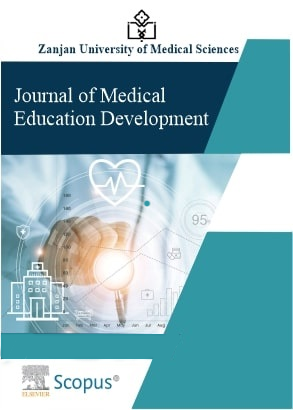- The evolving landscape of medical education innovations
Kourosh Amini * - Basic concepts in medical education within the teaching-learning domain: a first guide
Mohammad Abdi * - Effectiveness of video-assisted vs. face-to-face learning in surgical knot-tying skills: a randomized controlled pilot study
Akile Zengin *, Orkhan Ulfanov, Yusuf Murat Bag, Yavuz Selim Angin, Murat Ulas - Unspoken power dynamics and the hidden curriculum in allied medical education: a qualitative study of lecturer–student relationships at the University of Calabar
Emmanuel Okon Enang *, Sandra Agiounim Imam, Ezra Onyedikachi Madu, Ofonime Esangubong Lawson, Blessing Etuk, Tommy Adah Adah - Unpacking readiness competence: a descriptive qualitative study of health students in interprofessional online learning
Riska Cahyani Zahra, Enita Dewi *, Johari Daud Makajil, Hamidah Hassan - PAL-Jigsaw: a hybrid cooperative learning model in medical education
Amanda Tifanny Nur Fauziyah Nur Fauziyah *, V Dwi Jani Juliawati, Christopher David Kurniawan, Bayu Perkasa Rosari, Darmadi Darmadi, Sem Samuel Surja - VARK learning preferences in preclinical medical students and their theoretical implications within the BLOOM-AI framework
Ahmed Al Harthi, Thamra Al Ghafri *, Laila Al-Zidjali, Sadhana Roychoudhury - The relationship between clinical instructors’ leadership styles and nursing students’ self-efficacy
Somayeh Namdari, Fereshteh Mollaei *, Mohsen Kamali, Seyed Kazem Mousavi - Simulation-based instruction: student enjoyment of a computer-based practical activity
Tarig H Merghani *, Nizam Arshad Khan, Husham Taha, Azza O Alawad - Medical students' perceptions of the impact of problem-based learning on critical thinking and collaborative learning
Pradeep Kumar Sahu *, Maya Jurawan, Kristin Ramdeen, Aimee Seeram, Britney Dookie, Mya Gould - Self-directed learning readiness among medical students: an observational study
Giti Karimkhanlooei *, Somayae Abdollahi Sabet, Fereshteh Pashazadeh - Predictors of academic procrastination in Iran: distinguishing between problematic use, intensity, and procrastinatory use of social media
Hatef Tirgari Seraji, Amirhossein Rasouli, Faramarz Ramzi, Omid Saed * - The blurred lines of plagiarism and ai authorship in scientific publishing
Nematullah Shomoossi, Kamyab Alizadeh *
Journal Metrics
Time to First Decision: 23.7 days
Time to Final Decision: 158 days
Time to Publish: 98.7 days
Acceptance Rate: 36.4%

This work is licensed under a Creative Commons Attribution-NonCommercial 3.0 Unported License which allows users to read, copy, distribute and make derivative works for non-commercial purposes from the material, as long as the author of the original work is cited properly.
Acceptance Rate: 36.4%

This work is licensed under a Creative Commons Attribution-NonCommercial 3.0 Unported License which allows users to read, copy, distribute and make derivative works for non-commercial purposes from the material, as long as the author of the original work is cited properly.





.png)



